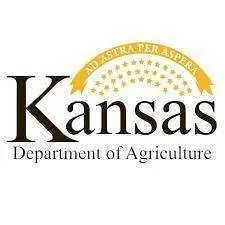MANHATTAN, Kansas The Kansas Department of Agriculture has recently updated its interactive map of Kansas, showing the economic contribution of agriculture across the state. Located on the KDA website, this interactive resource can be used to find the agricultural economic facts for each of the 105 counties in Kansas, as well as a report for the entire state.
Agriculture has a significant impact on the Kansas economy, and every county across the state plays an important role in that economic contribution, said Kansas Secretary of Agriculture Mike Beam. We know that our farmers, ranchers and agribusinesses across a variety of commodity sectors continue to innovate and find ways to meet the needs of the nation and the world.
KDA annually updates the state and county economic contributions of the 72 sectors of agriculture and agriculture-related industries which directly affect the states economy. These sectors contribute an estimated $47.3 billion in direct output and account for over 135,000 jobs in Kansas. In addition to the direct output, the reports include the indirect and induced effects of agriculture and ag-related sectors, which demonstrate the total impact that agriculture has in Kansas communities. This total economic contribution of agriculture is approximately $67 billion and supports more than 238,000 jobs statewide.
The economic reports include lists of the top ten sectors by output and by employment. Once again the states top sector in both categories is beef cattle ranching and farming, which includes feedlots and dual-purpose ranching and farming. Other notable sectors in these top ten lists include grain farming, animal (except poultry) slaughtering, and dog and cat food manufacturing.
Updated county and state economic impact data as well as export data is available on the KDA website atagriculture.ks.gov/ksag. For updated information, click on a county and find the 2021 Full Report for County after the county sector list. KDA utilizes data compiled by the U.S. Department of Agricultures National Agricultural Statistics Service and by Euromonitor International. The economic contribution data is sourced from the most recent IMPLAN data available (2019) and adjusted for 2021.
###
Updated Reports Now Available on Agricultures Economic Contribution.pdf



